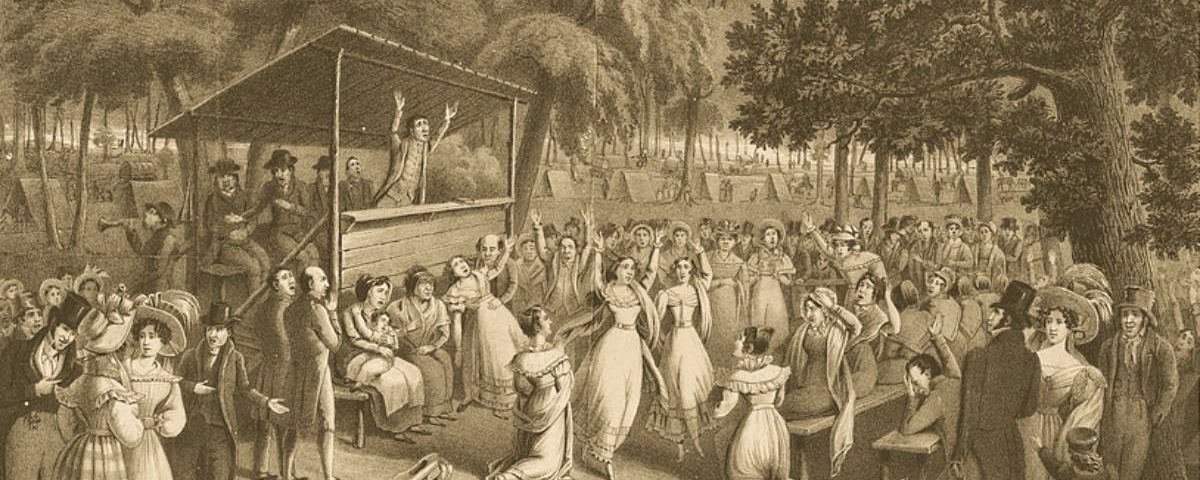Written by
Joshua Tomalin
Recently, Redeemed Zoomer, an online personality behind the Reconquista movement
which tries to reclaim mainline churches for the gospel has been quite publicly bashing
evangelicalism. This has caused much confusion, especially among evangelicals who are
within the very mainline churches that RZ wants to reclaim.
This has led to Redeemed Zoomer having a very interesting conversation with Gavin Ortlund,
on evangelicalism, ecclesiology, and deciding when to separate.
It is the first part of that discussion that I wish to address from the point of view of an
evangelical within the Church of England. As noted by Ortlund, RZ’s definition is very
American-focused. I would go further and say that RZ’s rhetoric is so American-centric that it
is almost completely useless outside of the limited context of the American church.
The first definition that Zoomer supplies is “Evangelical protestant is the opposite of
mainline protestant”. This category is just blatantly wrong, as even within the US, many
churches within the mainline would describe themselves as evangelical. This is pointed out
by Ortlund, and Zoomer concedes these are not the type of evangelicals he is talking about.
This appears to be a considerable oversight in seeking to define the term “evangelical” as it
ignores how a large number of evangelicals understand themselves. This is only exacerbated
by the fact that Zoomer appears totally unaware that a very large number of European
churches within the mainline would describe themselves as evangelical, whether Anglican,
Lutheran, or Reformed. His definition of evangelical in Europe almost entirely only applies to
Pentecostals, Baptists and Non-Denominationals – a relatively smaller number of European
Evangelicals than in the American context.
Zoomer’s second definition is “Modern evangelicalism has this connotation of this very antisacramental,
non-denominational, anti-institutional, contemporary style of Christianity.”
Again, this definition is completely falsified by even a tiny amount of knowledge about
evangelicalism, which it appears Zoomer has neglected to actually study before he critiqued
it online. Evangelicals often have a very high view of the sacraments, are present in
denominations, committed to intuitions, and vary in style of worship, from contemporary to
traditional. He is wrong on every count he tries to address.
Gavin Ortlund rightly brings many of these critiques himself to little avail. He identifies 3
uses of “Evangelical”. Firstly, especially in reformation time, it has been synonymous with
protestant. Secondly, it describes the great evangelical awakening of Wesley and Whitfield.
Thirdly, it describes the Neo-Evangelicalism of the mid-20th century in America. Due to the
nature of the discussion, an agreement on how to use the term “evangelical” is never
reached, and Zoomer continues in his “Evangelical=non-mainline” usage.
I seek to suggest that a broad definition of evangelical is needed. There are a couple of
different frameworks worth considering.
First is Bebbington’s Quadrilateral, to say the evangelicals are biblical, cross-centred,
conversionist, and activist. This is a helpful definition when trying to define the difference
between all reformation protestants, and those of the evangelical awakenings. However, in
their discussion, Ortlund gives an impression that Evangelicalism has progressed from the
time of Wesley and Whitfield to the time of the Neo-Evangelicals. I know this is not Ortlund’s
actual view, as in separate videos he holds up figures such as John Stott as a type of
evangelical alongside a more neo-evangelical such as Billy Graham.
A second possibility for a broad definition would be the academic standard defined by the
National Association of Evangelical. This can be found below:
The NAE/LifeWay Research method includes four statements to which respondents must
strongly agree to be categorized as evangelical:
– The Bible is the highest authority for what I believe.
– It is very important for me personally to encourage non-Christians to trust Jesus Christ
as their Savior.
– Jesus Christ’s death on the cross is the only sacrifice that could remove the penalty of
my sin.
– Only those who trust in Jesus Christ alone as their Savior receive God’s free gift of
eternal salvation.
A broad definition would be able to describe both Stott and Graham as evangelical – but
there also needs to be a distinction to allow discussion and prevent confusion.
I would suggest that the framework we need to use is recognizing that Evangelical is a broad
umbrella, and discerning where someone might sit under that. This would allow neo-
Evangelicalism to be criticised without unfairly critiquing Classical Evangelicals.
It is unfortunate that without an understanding of the differences within evangelicalism
Zoomer will continue to alienate those he would wish to ally with, both in America, but
especially in Europe. The fact that such a nuance is entirely absent from Zoomer’s critiques
of American Neo-Evangelicalism appears to be evidence of deficient study of evangelicalism
before he sought to critique it. This conversation between Gavin Ortlund and Redeemed
Zoomer demonstrates the dangers of engaging in online discussion and critique without an
adequate understanding of the topic. My hope would be that this is a lesson to the young
Reconquista movement that a sharp polemic does not always contain truth, but often
obscures it, and I hope that Redeemed Zoomer realises the damage he is doing and repents
of his words.




